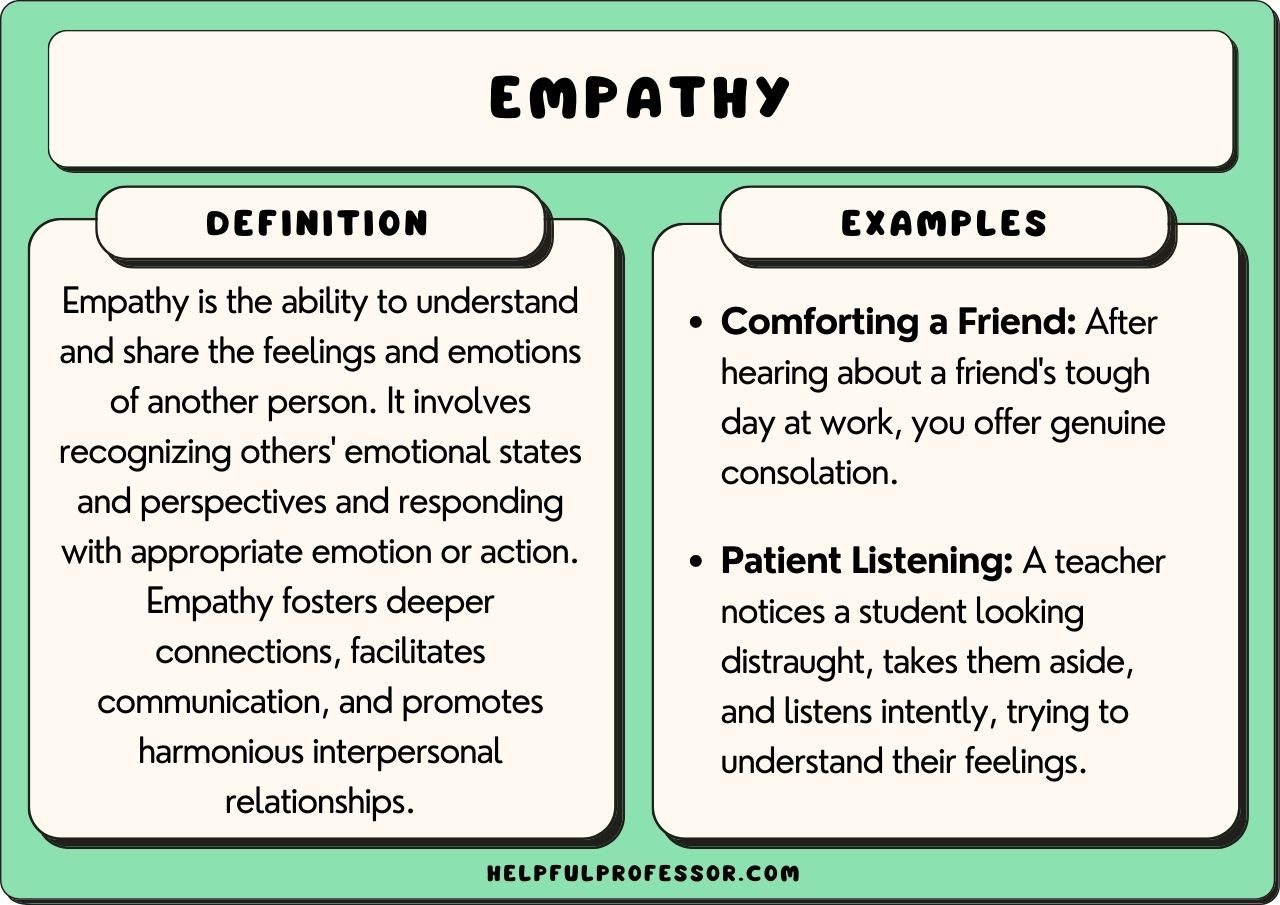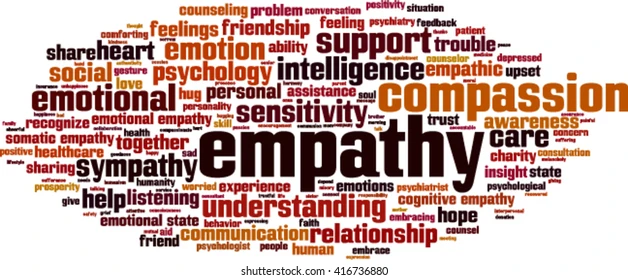Developing empathy and compassion for emotional intelligence
In today’s interconnected world, the ability to empathize and show compassion towards others is a vital component of emotional intelligence. Empathy not only enhances our relationships but also contributes to personal growth, social harmony, and overall well-being. In this blog, we’ll delve into the importance of empathy and compassion for emotional intelligence and explore actionable strategies to cultivate these essential skills.

Understanding Empathy and Compassion
Empathy is the ability to understand and share the feelings of others. It involves putting oneself in someone else’s shoes, experiencing their emotions, and responding with care and understanding. Compassion, on the other hand, goes beyond empathy—it’s the desire to alleviate the suffering of others and take action to help.
Why Empathy Matters for Emotional Intelligence
Empathy plays a pivotal role in various aspects of our lives:
- Enhanced Relationships: Empathetic individuals are better equipped to communicate effectively, resolve conflicts, and build meaningful connections with others.
- Improved Emotional Regulation: By understanding the emotions of others, we can better regulate our own emotions and respond appropriately in social situations.
- Increased Collaboration: Empathy fosters cooperation and teamwork, leading to more productive and harmonious relationships in personal and professional settings.

Practical Strategies for Developing Empathy and Compassion
- Active Listening: Practice active listening by giving your full attention to others, maintaining eye contact, and asking clarifying questions. Avoid interrupting or judging, and strive to understand their perspective without imposing your own biases.
- Cultivate Curiosity: Develop a genuine curiosity about others’ experiences, backgrounds, and emotions. Ask open-ended questions and show genuine interest in their thoughts and feelings.
- Practice Perspective-Taking: Put yourself in someone else’s shoes and imagine how they might be feeling in a given situation. Consider their unique perspective, beliefs, and cultural background.
- Express Empathy Verbally and Nonverbally: Use empathetic language and gestures to convey understanding and support. Offer words of validation and encouragement, and provide comforting gestures such as a gentle touch or a reassuring smile.
- Volunteer and Help Others: Engage in acts of kindness and service to cultivate compassion and empathy. Volunteer for charitable organizations, offer assistance to those in need, and seek opportunities to make a positive impact in your community.
- Practice Self-Compassion: Develop empathy for yourself by treating yourself with kindness and understanding. Acknowledge your own feelings and struggles without judgment, and practice self-care to nurture your emotional well-being.

Incorporating Empathy into Daily Life
Make empathy a priority in your daily interactions and relationships. Take time to connect with others on a deeper level, listen actively, and show genuine concern for their well-being. By cultivating empathy and compassion, you’ll not only enhance your emotional intelligence but also contribute to a more empathetic and compassionate world.
In conclusion, empathy and compassion are foundational pillars of emotional intelligence. By honing these essential skills, we can foster stronger relationships, navigate social interactions with grace and understanding, and contribute to a more empathetic and compassionate society. Let’s commit to cultivating empathy in ourselves and others, one empathetic gesture at a time.
FAQs
- What is the difference between empathy and compassion?
- Empathy is the ability to understand and share the feelings of others, while compassion involves feeling concern for others’ suffering and taking action to help.
- How does empathy contribute to emotional intelligence?
- Empathy enhances emotional intelligence by improving communication, conflict resolution, and relationship-building skills.
- Can empathy and compassion be learned or developed?
- Yes, empathy and compassion can be learned and cultivated through practice, self-awareness, and empathy-building exercises.
- What are some signs of empathy in individuals?
- Signs of empathy include active listening, perspective-taking, sensitivity to others’ emotions, and willingness to help.
- Why is empathy important in personal relationships?
- Empathy fosters understanding, trust, and intimacy in personal relationships by validating others’ experiences and emotions.
- How can empathy benefit professional relationships and teamwork?
- In the workplace, empathy promotes collaboration, teamwork, and effective leadership, leading to improved productivity and morale.
- Are there specific exercises or activities for developing empathy?
- Yes, empathy-building exercises such as perspective-taking, role-playing, and volunteering can help develop empathy skills.
- How can I improve my ability to understand and empathize with others?
- Practice active listening, ask open-ended questions, and seek to understand others’ perspectives without judgment or bias.
- What are some barriers to empathy, and how can they be overcome?
- Barriers to empathy include stereotypes, biases, and emotional detachment. Overcome them by increasing self-awareness, challenging assumptions, and practicing empathy regularly.
- How can empathy be balanced with self-care and boundary-setting?
- While empathy is important, it’s essential to prioritize self-care and set boundaries to avoid emotional exhaustion or burnout.
- Can empathy be taught to children, and if so, how?
- Yes, empathy can be taught to children through modeling empathetic behavior, encouraging perspective-taking, and teaching empathy-related skills such as active listening and sharing.
- What role does empathy play in conflict resolution?
- Empathy promotes understanding and de-escalation in conflicts by helping individuals recognize and validate each other’s emotions and perspectives.
- Is there a connection between empathy and emotional resilience?
- Yes, empathy enhances emotional resilience by promoting social support, coping skills, and adaptive responses to adversity.
- How can empathy be applied in diverse cultural contexts?
- Respect cultural differences, listen actively, and seek to understand others’ cultural perspectives and values to demonstrate empathy in diverse contexts.
- Can empathy be overused or misapplied?
- While empathy is generally beneficial, over-identification with others’ emotions or neglecting one’s own needs can lead to empathy fatigue or emotional exhaustion. It’s important to maintain a balance between empathy and self-care.
Also Read :
- Mastering Emotional Intelligence: A Guide to Understanding and Managing Your Emotions Effectively
- How to Quit Smoking or Vaping and Improve Lung Health
- Risks of Prolonged Sitting: How to Stay Healthy and Active
- Understanding Hemorrhoids: Causes, Symptoms, and Treatment Options
- Effective Strategies for Managing Chronic Pain: A Comprehensive Guide
- Coping Strategies for Anxiety and Depression: Practical Techniques for Mental Well-being
- What is the best diet for weight loss?


I am genuinely amazed by your profound understanding and superb writing style. Your expertise is evident in every piece you write. It’s obvious that you put a lot of effort into understanding your topics, and this effort does not go unnoticed. We appreciate your efforts in sharing this valuable knowledge. Keep up the great work!